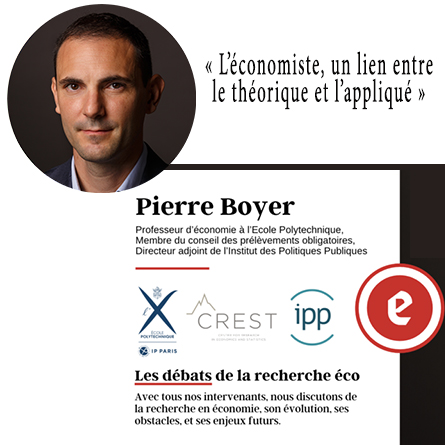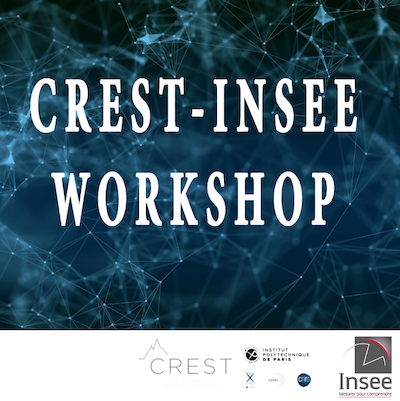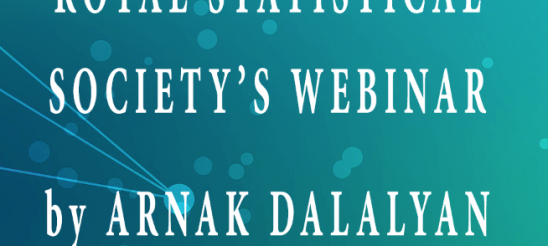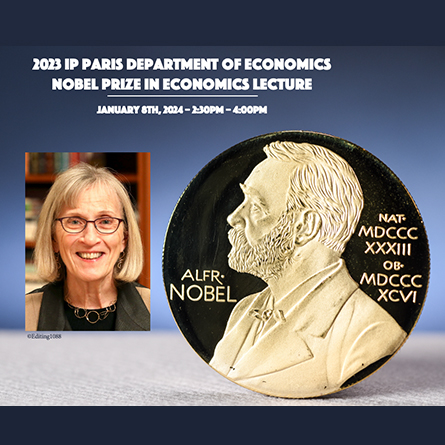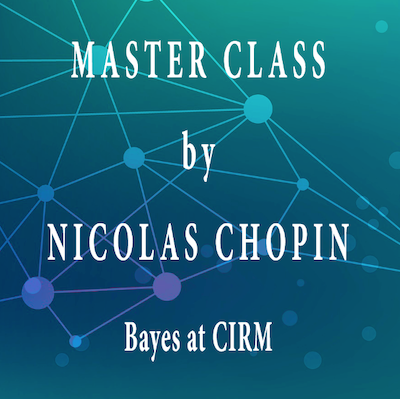Une publication du Le Conseil d’Analyse Économique coécrite par Jeanne Astier, Ariane Salem, Gabrielle Fack, Julien Fournel et Flavie Maisonneuve.
Étude N° 1292 de la DREES, co-écrite par Milena Suarez Castillo, avec la collaboration de David Benatia, Vianney Costemalle et Christine le Thi
“Plus exposés à la pollution de l’air, les jeunes enfants des ménages modestes, plus fragiles, sont les plus affectés”
Étude N° 1292
Parue le 04/01/2024
Résumé:
La Direction de la recherche, des études, de l’évaluation et des statistiques (DREES) publie une étude sur les inégalités de santé chez les jeunes enfants en lien avec la pollution de l’air. Au-delà des différences d’exposition, qui sont en défaveur à la fois des jeunes enfants des ménages les plus aisés et des ménages les plus modestes, il existe de fortes disparités de vulnérabilité vis-à-vis de la pollution de l’air. 10 % des enfants concentrent l’essentiel des effets observables lors d’une augmentation de l’exposition à la pollution de l’air avant leur premier anniversaire, via le recours aux soins en lien avec certaines pathologies respiratoires. Plus souvent dans un moins bon état de santé à la naissance, ils ne sont pas répartis de façon égale sur l’échelle de niveaux de vie des parents : parmi ces enfants les plus affectés, le dixième le plus modeste est 1,6 fois plus représenté que le dixième le plus aisé.
Lien vers la publication complète:
La presse en parle :
Les Echos :
L’Humanité :
Le Parisien :
Une tribune de Pierre Rousseaux, Cofondateur d’Oeconomicus, doctorant au CREST et économiste à l’IPP, pour le journal L’Opinion
Publié le 4 janvier 2024
Interview de Pierre Boyer, nominé du Prix du Meilleur Jeune Economiste Français 2023 par Pierre Rousseaux pour le journal Oeconomicus
A look back at the CREST-INSEE workshop
On Wednesday 29th November, CREST welcomed for the first time the annual CREST-INSEE Workshop. The first workshop was held at INSEE, and the aim is now to make it an annual event held every two years at each institution.
Presentations were held by scientific personalities from CREST and D2E:
• Estimating Cross-Border Tobacco Purchases in France, Mélina Hillion (D2E)
• Firm Moral Hazard in Short-Time Work, Alice Lapeyre (CREST)
• Energy Cost Pass-Through: Evidence from French Manufacturers, Raphaël Lafrogne Joussier (D2E) (joint work with Julien Martin and Isabelle Méjean)
• Welfare Effects of Increasing Transfers to Young Adults: Theory and Evidence, Marion Brouard (CREST)
• Flood Risk and Residential Mobility in France, Julie Sixou (D2E) (joint with Christine Le Thi and Katrin Millock)
• Too Constrained to Grow. Analysis of Firms’ Response to the Alleviation of Skill Shortages, Sara Signorelli (CREST) (joint work with F. Fontaine)
The purpose of this workshop is to encourage and develop exchanges and research projects between CREST and the Economic Studies Department of INSEE. In front of a large audience, high-quality presentations on economic topics of wide interest (trade, environment, public economics, …) provided an opportunity to exchange views and ideas. A real success!
COP28: Feedbacks from Patricia Crifo, researcher in Climate and Environmental Economics
Patricia Crifo, researcher at CREST-École polytechnique, recently participated at COP28, for the second time, held in Dubai.
Why did COP was created in the first place?
COP means “Conference of the Parties”. It is a governance body where the States party to an international convention meet. The most high-profile COP is the one on climate change, the annual meeting of the States party to the United Nations Framework Convention on Climate Change (UNFCCC). There are other COPs, such as the COP of the Convention on Biological Diversity (signed in 1992), COP15 in Montreal in December 2022.
What were the objectives of the COP28?
COP28 was held in Dubai (UAE) from 30/11 to 12/12.
There were encouraging signs on three fronts in particular.
The first important signal was the creation of a fund for loss and damage on the very first day, and the many pledges of funding.
Another key point of this COP was the Global Assessment, a key moment in the implementation of the Paris Agreement.
Finally, there is the question of the transition away from fossil fuels.
Concerning climate finance: The “Loss and Damage” Fund is a compensation fund designed to give vulnerable countries that have suffered climate damage access to financing to repair and rebuild. Needs are estimated at $150-300bn/year between now and 2030. The text provides for a system for allocating resources (managed by the World Bank), with a minimum percentage for the least developed countries and small islands. France has announced that it will contribute 100 million euros.
With regard to the assessment, this is the first global assessment of the commitments made by countries since the 2015 Paris agreements, and it should set a new course for climate action by countries. From 2023, this global review will take place every 5 years.
It’s a new course because progress is expected on: the ambition of their climate plans, known as nationally determined contributions (NDCs), but also the global objective for adaptation to climate change and the new climate financing objective for the post-2025 period.
On the issue of the transition away from fossil fuels, a historic agreement was reached in Dubai this year. Can you tell us more about it?
Progress was expected on the issue of fossil fuels, with a major battle over terminology (reducing or phasing out fossil fuels). The approval by consensus on Wednesday 13 December of the final text calling for a “transition” away from fossil fuels is an important step.
How important is the voice of researchers and institutions such as École polytechnique during this event?
The École polytechnique (X) has RINGO (research independent non-governmental organisation) status, which gives it observer status, not negotiator status.
Admission to the UNFCCC as an observer enables X to build up its expertise in the UNFCCC process, to train students with direct experience of negotiations and to contribute as a member of the RINGO group. It is also a direct contribution to the process of mobilising French higher education institutions in the UNFCCC.
Members of the delegation participate in side events, which are a platform for admitted observer organisations to engage with Parties and other participants to advance and share knowledge, and explore a range of feasible options to address the climate challenge. These events cover important topics and are an opportunity to mobilise stakeholders, academics, staff and students.
Side events and exhibitions are organized by observer organisations (NGOs and IGOs), parties in partnership with observers, UNFCCC divisions, UN organisations and specialised agencies. By participating in side events, these organisations present their work or encourage discussions on key issues, often engaging the audience in a question-and-answer session.
What significant advances in research and teaching have been made possible by your participation in COP28?
I was only at COP28 for 3 days, but I took part in 3 side events, including one on educational issues, in partnership with the IPCC and the Université Cote d’Azur. The aim was to examine how education can be transformed to empower young people and strengthen their participation in the science of climate change and the IPCC process. I presented the actions we are taking at the Ecole Polytechnique to mobilise our students (COPClimat course in the ESCLIP Masters – Economics for smart cities and climate policy, E4C annual challenges etc).
I also took part in two side events on the impact of university partnerships on the decarbonization of ecosystems.
At Institut Polytechnique de Paris (IP Paris), we have several initiatives and institutional partnerships in which our students have a key role to play. For example, the École polytechnique entered into a partnership with the city of Paris in 2019 (being renewed in 2024), under which ESCLIP master’s students assess all dimensions of Paris’s climate action plans and make recommendations to policymakers.
Similarly, the interdisciplinary Energy4Climate centre (E4C) regularly organises a student challenge for students from 9 institutions to reflect on and propose solutions for carbon neutrality and contribute to the fight against climate change.
Finally, the Sustainable Finance and Responsible Investment (FDIR) research initiative, supported since 2007 by a dozen sponsors (investors and asset managers), which aims to broaden the scope of financial theories and practices to take greater account of the social environment and sustainable development in corporate governance, funds a number of research projects on climate and sustainable finance.
Catalyzing Conversation: The Royal Statistical Society’s Webinar on Dalalyan’s Paper ‘Theoretical Guarantees for Approximate Sampling from Smooth and Log-Concave Densities'”
On 31 October, the Royal Statistical Society webinar was devoted to Arnak S. Dalalyan’s 2017 Series B paper ‘Theoretical Guarantees for Approximate Sampling from Smooth and Log-Concave Densities’, featuring contributions from Hani Doss and Alain Durmus.
“[Dalalyan] combines techniques from convex optimisation with insights from random processes to provide non-asymptotic guarantees regarding the accuracy of sampling from a target probability density. These guarantees are notably simpler than those found in the existing literature, and they remain unaffected by dimensionality.
The findings pave the way for more widespread adoption of the mathematical and algorithmic tools developed in the field of convex optimization within the domains of statistics and machine learning.”
Showcasing significant recent papers published in the Society’s journals, the journal webinar format aims to bring authors closer to their audience in academia and industry. Impactful features of the paper are presented by the author, followed by contributions from the guest discussants.
CRESTive Minds – Épisode 3 – Anna Korba
Researcher portrait: Anna Korba, assistant professor at CREST-ENSAE Paris.
What is your career path?
I pursued a three-year program in Math/Data Science at ENSAE, concurrently completing a specialized Master’s in Machine Learning at ENS Cachan. My academic journey continued with a Ph.D. in Machine Learning at Télécom ParisTech under the supervision of Stephan Clémençon.
Afterward, I gained valuable experience as a postdoctoral researcher at the Gatsby Computational Neuroscience Unit, University College London, collaborating with Arthur Gretton.
In 2020, I returned to ENSAE, joining the Statistics Department as an Assistant Professor. This trajectory has equipped me with a strong foundation in both Machine Learning and Statistics.
Did you have a statistician who particularly inspired you? If so, what were their research topics?
While I don’t have a single statistician who profoundly influenced me, I draw inspiration from the excellent mathematics taught by instructors like Arnak Dalalyan, Nicolas Chopin, Cristina Butucea and others at ENSAE. Also, I remember very well my first international conference in Machine Learning (ICML 2015 in Lille). Attending talks within the Deep Learning community, though somewhat distant from my research focus at the time, left a lasting impression. Witnessing the rapid and substantial advancements, particularly in areas like question answering, fascinated me. Conferences I attended provided exposure to influential figures—from esteemed senior professors to brilliant Ph.D. students—enriching my perspective on various statistics and machine learning subjects.
How did you get into statistics and Machine Learning in particular?
As a student I liked mathematics and coding. At ENSAE, I had the choice between quantitative finance and machine learning. With quantitative finance hiring slowing down, I embraced the rising tide of machine learning, drawn to its dynamic nature and innovative potential.
What are your research topics?
One of my primary research focuses is on sampling—approximating a target probability distribution when only partial information is available, such as its unnormalized density or samples. This versatile problem holds applications in various areas of machine learning.
In Bayesian inference, I address the posterior probability distribution over model parameters, particularly in supervised learning scenarios like determining the weights of linear or neural network regressors. Additionally, in generative modeling, my work involves learning the underlying process from a set of samples, such as true faces from celebrities, with the goal of generating new faces.
Beyond sampling, I’ve contributed to research in preference learning, structured prediction, and causality.
The framework of your field of research is fairly recent, and brings together different communities. Could you name them and explain how this collaborative effervescence has enabled a great advance?
My research intersects various communities, including experts in MCMC (Markov Chain Monte Carlo) methods, partial differential equations, dynamical systems, optimal transport (OT), and machine learning. In recent years, these traditionally independent fields have converged, fostering collaborative efforts.
A significant milestone in this convergence was a semester at Berkeley, organized by P. Rigollet, S. Di Marino, K. Craig, and A. Wilson, which brought together researchers from these diverse areas. Since then, the boundaries between these communities have become more fluid, sparking heightened interest and collaboration.
For example, I co-presented a tutorial on Wasserstein gradient flows with Adil Salim at ICML 2022, while Marco Cuturi and Charlotte Bunne presented a tutorial on OT, control, and dynamical systems at ICML 2023. These tutorials aim to introduce promising research directions and tools, providing a comprehensive panorama to a broad audience of machine learning researchers.
This collaborative effervescence has resulted in exciting progress on both theoretical and computational fronts. Researchers with expertise in multiple domains are leveraging their backgrounds to overcome challenges, offering convergence guarantees for numerical schemes and addressing practical limitations in sampling schemes, such as convergence time and local minima.
There are still many unsolved problems in the various applications. What would you like to solve or advance in your future research?
While significant strides have been made in sampling techniques inspired by optimization literature, there are still numerous unexplored aspects. My current research focus involves the incorporation of constraints into sampling methodologies. For instance, I am exploring ways to ensure fairness in predictive models by constraining the posterior distribution, making predictions independent of sensitive attributes like gender. In the realm of generative modeling, it is interesting to incorporate constraints or rewards as well, e.g. to generate images that satisfy some criterion such as brightness.
How is the intersection of fair analysis methods and Bayesian statistical methods an important advance for Machine Learning?
Bayesian inference, by providing a posterior distribution over the parameters of a model, allows for predictions with uncertainty. This is pivotal in applications where users require models capable of predicting with uncertainty, as the distribution over predictions provides a more comprehensive understanding than pointwise predictions alone. Moreover, incorporating fairness constraints in Bayesian methods holds important applications, ensuring that predictions are not influenced by sensitive attributes. This intersection enhances the interpretability and ethical considerations of machine learning models.
2023 Economics Nobel Prize Lecture from researchers and PhDs of the Department of Economics of IP Paris
The department of Economics of IP Paris is honored to invite you to the Nobel prize in economics lecture, open to all, on the 8th of January 2024 from 2:30pm to 4:00pm to present the contributions of this year’s recipient Claudia Goldin “for having advanced our understanding of women’s labour market outcomes”:

The lecture be given by Federica Meluzzi (PhD IPParis-CREST), Roland Rathelot (IPParis-CREST-ENSAE) and Sara Signorelli (IPParis-CREST-X).
It will be accessible to a broad audience of researchers and students.
The lecture will be in a hybrid format from both Amphi 250 in the ENSAE building and online on Zoom.
Youtube link to the recording: https://youtu.be/4eDyP5go43k
Advances in Bayesian Computation: A Masterclass on State-Space Models and Sequential Monte Carlo Algorithms by Professor Nicolas Chopin
Nicolas Chopin, Professor in Data Sciences / Statistics / Machine Learning
Nicolas Chopin is a Professor of Data Sciences/Statistics/Machine Learning at ENSAE Paris, Institut Polytechnique de Paris, and researcher at CREST.
He is particularly interested in all aspects of Bayesian computation, that is algorithms to perform Bayesian inference, including:
- Monte Carlo methods: particularly Sequential Monte Carlo, but also plain, quasi- and Markov chain Monte Carlo;
- Fast approximations: e.g. Expectation Propagation and variational Bayes.
Nicolas Chopin is currently an Associate editor of two journals, Annals of Statistics and Biometrika.
Last October, Nicolas Chopin was invited to give 2 Master Classes during the Autumn School in Bayesian Statistics.
Autumn School in Bayesian Statistics 2023
The objective of this autumn school is to provide a comprehensive overview of Bayesian methods for complex settings: modeling techniques, computational advances, theoretical guarantees, and practical implementation. It will include two masterclasses, on Sequential Monte Carlo and on Bayesian causal inference, tutorials on NIMBLE and on Bayesian Statistics with Python, and a selection of invited and contributed talks.
More information on the Autumn School in Bayesian Statistics 2023
Masterclass given by Nicolas Chopin on State-Space Models and SMC Algorithms
Nicolas Chopin gave a four-hour master class on state-space models and SMC algorithms (Sequential Monte Carlo, also known as particle filters) as part of the “Bayes at CIRM” autumn school, held at CIRM (CNRS permanent conference center for mathematics) from October 30 to November 3, 2023. State-space models have become very popular in recent years in all fields of application where a dynamic system is imperfectly observed, including epidemiology (modeling an epidemic such as COVID), robotics (navigation), finance (stochastic volatility), automatic language processing (grammatical function detection), and even image generation (diffusion-based methods). These models are particularly difficult to estimate. SMC algorithms have been developed over the last twenty years to meet this challenge. More recently, they have been extended to a more general class of problems and can now also be used to simulate any probability law, as effectively or even more effectively than MCMC (Markov chain Monte Carlo) algorithms.
In four hours, the master class presents an overview of all aspects of research in this field, from theory (convergence of algorithms), through the development of new algorithms and their efficient implementation in Python, to their application in different fields.
This master class is based on the speaker’s book (co-authored with Omiros Papaspiliopoulos): “An introduction to Sequential Monte Carlo” published by Springer :
https://link.springer.com/book/10.1007/978-3-030-47845-2
The master class was video-recorded and uploaded by CIRM on YouTube:
https://www.youtube.com/watch?v=0CpY1WdTkFE
https://www.youtube.com/watch?v=uuoGTBy1yH8




